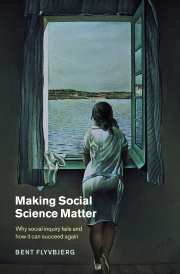1 - The Science Wars: a way out
Published online by Cambridge University Press: 05 June 2012
Summary
Plato is dear to me, but dearer still is truth.
AristotlePhysics envy and pre-Kantian shamans
When the May 1996 issue of the journal Social Text appeared, an issue devoted to the understanding of “Science Wars,” the editors became targets in these “wars” in ways they had not imagined. The issue included a bogus article by New York University mathematical physicist Alan Sokal, who feigned an earnest reflection on the political and philosophical implications of recent physics research for cultural studies. Sokal revealed the hoax himself, and it immediately became a hotly debated issue in academic and popular media around the world. The appearance of the article was not only taken as a sign of shoddy scholarship by the Social Text editors but as an exposé of cultural studies and social science in general. For instance, Nobel prize-winning physicist Steven Weinberg used the hoax to identify what he calls a fundamental “opposition” between natural and social scientists, especially regarding what Weinberg sees as dangerous anti-rationalism and relativism in social science and cultural studies. Those on the other side of the “wars” countered by criticizing Sokal and calling Weinberg and like-minded natural scientists “pre-Kantian shaman[s]” repeating the “mantras of particle physicists,” with their “reductionist view of science.”
The year before Sokal's hoax, the “wars” had raged over the scientific status of a high-profile US National Opinion Research Center study, which had been launched as a “definitive survey” of sexual practices in the United States.
- Type
- Chapter
- Information
- Making Social Science MatterWhy Social Inquiry Fails and How it Can Succeed Again, pp. 1 - 6Publisher: Cambridge University PressPrint publication year: 2001
- 1
- Cited by



